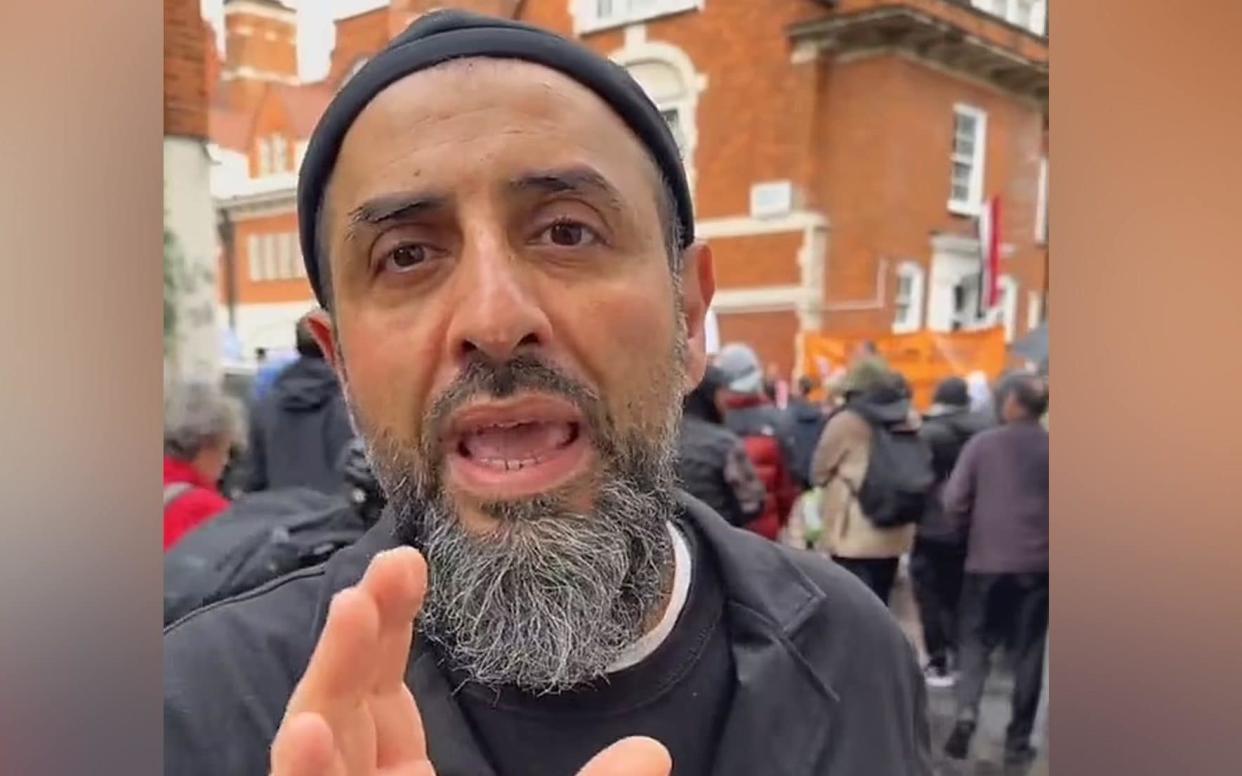It’s legitimate to ask whether BMA bigots can be trusted with our health

When an elderly man I know was admitted to an NHS hospital with dementia recently, his daughter’s anxiety was magnified by worries about racism. In his absentmindedness, she told me, would her dad say something that allowed hostile medical staff to work out that he was Jewish?
She’s not the only Jewish person I know who encourages her loved ones to hide their identity when they require medical care. Since October 7, some hospitals and surgeries have become hostile environments for many, particularly those who are observant.
Palestine flags have become a regular fixture on NHS uniforms. The aggression with which it has been used since the Hamas atrocities has allowed it to become hijacked as a symbol of something very dark.
Are we over-reacting? Wasn’t the incident in March – in which a nurse wearing a Palestine pin is alleged to have forced a nine-year-old Orthodox boy out of bed to receive treatment for a blood disorder on the floor – just a case of bad apples?
The evidence tells a different story. This week, the British Medical Association’s annual meeting was accused of becoming a “vehicle for Jew hatred”. Amid a “hostile” atmosphere, a woman was heckled for saying she was a “practising Jew”. Many of the motions had to be censored because they “risked being perceived as discriminatory, more specifically, anti-Semitic”.
There were shameful numbers of demands for boycotts on the Jewish state. The words “Israel” or “Israeli” appeared no fewer than 75 times in motions. What does the only Jewish country in the world, 3,000 miles away, have to do with doctors and nurses caring in Britain? The most obvious answer is most likely the correct one.
Doctors have told me of their concern as their hospitals have been buoyed on the rising tide of bigotry. One said that there was a struggle in the staffroom over the television. Activist medics kept changing the channel to Al Jazeera as a gesture of dominance. The dispute – petty in one light, disturbing in another – had to be escalated.
The evidence is more than anecdotal. According to a study by Dr Joseph Greenwall-Cohen and the Jewish Dental Association, 95 per cent of Jewish healthcare workers in Britain have seen a rise in anti-Semitism in their daily lives since October 7. Three-quarters of those surveyed said that they had been personally targeted at least once, mostly at the hands of colleagues. Half said that they did not feel safe in clinical settings.
There has been a surge of complaints about NHS staff. According to figures obtained by the Jewish Medical Association, in the four months following the Hamas atrocities, 66 medics were flagged to the regulator for things like defending Hamas, claiming Britain was an “Israeli colony” and denying the Holocaust. By contrast, there were just four complaints in 2021 and none in 2022.
Let’s pick out a few details. A family doctor from Harrow was unmasked as a leading figure in the extremist group Hizb ut-Tahrir, after he led a rally at which chants for “jihad” were heard on the streets of London. An anaesthetist shared a clip claiming that the Rothschild family invented the “so-called ‘Holocaust’” in order to “resist any criticism of their Zionist ways” and trick “dumb American goyim” into fighting for Israel.
A consultant surgeon attacked Israelis as “Zio-Neo-Nazis” and claimed that Israel controls the British government. At a rally for radical healthcare workers held at the UCL Institute of Education, Palestinian doctor Ghada Kardi was applauded when she declared: “What you saw on October 7 was breaking out from the cage of Gaza by a resistance movement.”
Then there’s British surgeon Ghassan Abu Sittah, who became a celebrity after returning from Gaza. After he was fêted in Parliament and provided evidence on war crimes to Scotland Yard, the Jewish Chronicle revealed that he had tearfully eulogised the founder of a terror group that was later involved in October 7. He is now under investigation by the General Medical Council for remarks made after the Hamas pogroms. Dr Abu Sittah did not respond to The Telegraph’s previous request for comment.
Amid poor care, growing waiting lists and rampant strikes, the myth of “our NHS” is beginning to crack for everyone. For many Jews, however, the “our” part has already collapsed.


